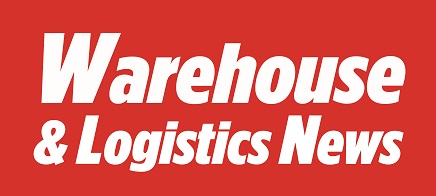There is nothing more that business dislikes than uncertainty and more than ever today it is not just the usual government/ political/economic uncertainties exercising concerns but also the impact of disruptive technologies that have changed how consumers satisfy their shopping needs, and therefore impact the supply chains. It is therefore important to ensure that forklift truck users are not stuck with inflexible truck acquisition deals, or for the matter an over-trucked fleet.
 A good time to take stock is when one’s fleet replacement is due for renewal. Whether buying or acquiring under some rental/lease arrangement the big truck suppliers can be helpful if you allow them to enter into a comprehensive exercise to understand every aspect of your logistics needs and what plans you may have for future expansion. But even so one should be familiar with truck varieties on the market because it is possible a large truck supplier without a certain, highly flexible truck type in his portfolio may ignore such a truck and supply more trucks than is necessary. This is where regular reading of the trade press can arm truck procurers against such risks.
A good time to take stock is when one’s fleet replacement is due for renewal. Whether buying or acquiring under some rental/lease arrangement the big truck suppliers can be helpful if you allow them to enter into a comprehensive exercise to understand every aspect of your logistics needs and what plans you may have for future expansion. But even so one should be familiar with truck varieties on the market because it is possible a large truck supplier without a certain, highly flexible truck type in his portfolio may ignore such a truck and supply more trucks than is necessary. This is where regular reading of the trade press can arm truck procurers against such risks.
For the last two decades or so the UK forklift market has been split between about 70% on all forms of truck hire/lease and 30% on outright purchase. In today’s uncertain markets this still seems sensible because of the degree of flexibility that hire allows. The other well-known advantages include certainty of costs where full contract service rental deals are involved; freedom to concentrate on core activities; release of capital where sale/leaseback deals are involved; less likelihood of unscheduled truck downtimes disrupting shipments; and the acquisition of a modern fleet. But as always the hire contracts must be carefully compared between competing quotes and the fine print sifted to highlight the snares. But given the extra market uncertainties posed by disruptive technologies should even more care be taken over truck procurement?
Some businesses rely heavily on economic forecasting models but their records are at best mixed because they are often based on assumptions that prove wrong. Moreover, these models pay little or no heed to disruptive technologies like online shopping. The latest Market Index from BITA, based on Oxford Economics forecast, paints a rosier picture for all of 2017, having a year earlier been wrong-footed, and tellingly highlights an impressive 40% rise in truck sales to the booming retail distribution sector in the third quarter of 2017 compared with the 2016 figures. Arguably, this could be a signal for caution that advises sticking with short-term rental deals of up to one year or, for the time being, switching to the burgeoning quality second-hand truck market.
There is no reason to believe that the remorseless rise in online shopping will ease anytime soon and not fulfil the prediction made several years ago that by 2020 40% of all High Street shops will close. The outlook for retail shops is dire and will lead to many job losses as well as rearranging supply chain patterns that look to soften this market. Today, a person running an impressive website from home need be the only link between an online buyer and product supplier, thus disintermediating much wholesale/retail business.
Welcome to the digital age.




Comments are closed.